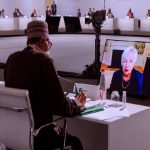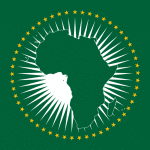U.S President Joe Biden has disclosed plans to remove Uganda, Gabon, Niger, and the Central African Republic (CAR) from a unique US-Africa trade initiative.
According to the president, the countries were either involved in “gross violations” of human rights or were not making progress toward democratic rule.
In the year 2000, the United States passed the African Growth and Opportunity Act (AGOA).
It provides eligible Sub-Saharan African countries with duty-free access to the United States for over 1,800 products.
President Biden said that Niger and Gabon – both of which are currently under military rule following coups this year – are ineligible for Agoa because they “have not established, or are not making continual progress toward establishing the protection of political pluralism and the rule of law”.
He also said that the removal of the CAR and Uganda from the programme was due to “gross violations of internationally recognised human rights” by their governments.
In May, the US government had said it was considering removing Uganda from Agoa and introducing sanctions on the country after it passed a controversial anti-homosexuality law.
The law, which imposes a death penalty on people found guilty of engaging in certain same-sex acts, has faced global criticism.
The four countries are yet to react to the announcement, which comes just before South Africa is due to host the 20th Agoa forum from Thursday this week.
Their expulsion from Agoa is set to take effect from the start of next year and is likely to impact their economies, as Agoa has been credited with promoting exports, economic growth and job creation among participating countries.
CAR is likely to be the least impacted by the Agoa expulsion, as it only recorded $881,000 (£722,300) in US exports in 2022, according to US government data.
The country, however, imported goods worth $23m from the US in the same year, creating a massive trade deficit between the two countries.
US data also show that Uganda exported goods worth $174m to the US last year, while Gabon and Niger recorded US exports of $220m and $73m respectively in the same period.
Last month, Ugandan President Yoweri Museveni said that several American companies had already stopped importing textiles – which fall under the Agoa trade deal – from Uganda because of the passing of the anti-homosexuality law.
“The homosexuals in the US are interfering with our export of textiles. Some of the orders have been cancelled there,” Mr Museveni was quoted as saying by the privately owned Daily Monitor newspaper.
In August, Mr Museveni banned the importation of second-hand clothes, a move thought to target the US, which is a major supplier of the used garments to Uganda and other African countries.
The threat to exclude Niger and Gabon from Agoa is the latest US government action against the two junta-led countries.
The US State Department announced last week that it had suspended most foreign aid to Gabon and would only resume assistance if Gabon’s transitional government establishes democratic rule.
In August, US Secretary of State Antony Blinken announced a similar measure against Niger, saying that the US “is pausing certain foreign assistance programs benefitting the government of Niger”.
Burkina Faso, Mali and Guinea have all previously been expelled from Agoa after military coups in those countries.














